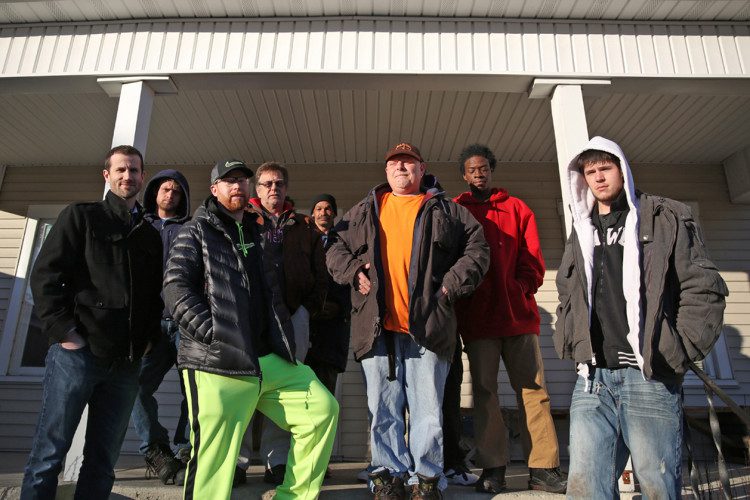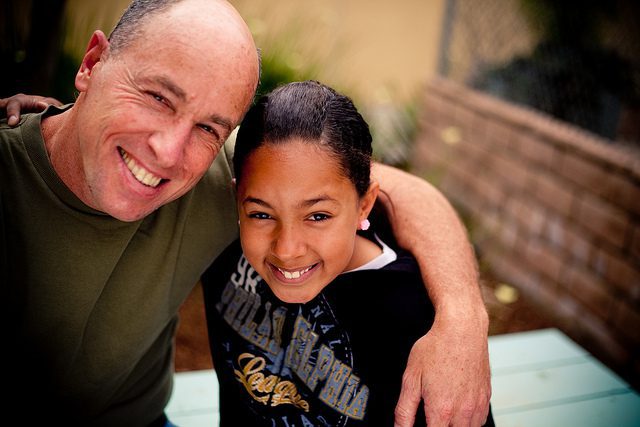in process
by Glen Doss, Major
 “Ka-whump! Ka-whump!” Abruptly sitting up in bed, I glanced about the room. “Are those mortar rounds?” Desperately attempting to discern reality, I evaluate my circumstances. Then it hit me: this is one more dream—another in the series of nightmares that never cease.
“Ka-whump! Ka-whump!” Abruptly sitting up in bed, I glanced about the room. “Are those mortar rounds?” Desperately attempting to discern reality, I evaluate my circumstances. Then it hit me: this is one more dream—another in the series of nightmares that never cease.
Such was my life during the interval between the Vietnam Tet Offensive of 1968 and my acceptance of Christ nearly two decades later. An atheist, unlike most who served with me, my dog tags read: “No Religious Preference.” I recognized no God to whom I might turn; therefore, though I fought to hide it beneath a veneer of stolidity, my despair increasingly mounted.
One buddy saw through my façade. While the world around us troubled me daily because I couldn’t make sense of the enormous amount of death and destruction, Joe Hartley went about his days seemingly unperturbed. I recall one scene: Joe sitting on the edge of his bunk quietly turning the leaves of his pocket Bible.
It was not that I often saw him reading it that impressed me. No, it was the peace of mind Joe so clearly possessed. I noticed he particularly exhibited this sense of peace when reading his Bible. And Joe was such a nice guy! Although I didn’t share his faith, I had to respect his calm disposition—it always made me feel good to talk with him.
“Joe,” I said to him one day. “Nothing seems to rile you. While the rest of us are shaking in our boots, wondering if our number is going to be up next; or getting drunk at the club—doing just about anything in an effort to keep our sanity—you sit calmly reading your Bible, maintaining that steady, unworried demeanor. Where does your peace of mind come from?”
“Let me answer your question by telling you a story,” he replied. “Can I do that? Do you know of the American Civil War general, Stonewall Jackson?”
“Of course.”
“Well, the story goes that General Jackson was asked how it was he could remain unnerved even in the very heat of battle, when the bullets were flying all about him as heavily as raindrops in a pouring storm. He answered that it was because he trusted in God. He knew that God was in control and would handle matters; therefore, such issues as his own death were of little concern to him. ‘If all men trusted in God as I do,’ he said, ‘they would be equally brave.’
“And so it is with me, Glen: I place my trust in God. He will do what’s best, and he knows what that is far better
than I. So why should I worry? Why should I be afraid?”
“Oh. Okay, I see. Well, that may work for you well enough, but I don’t believe in God.”
“Yes, so I’ve heard,” he replied. And I saw a twinkle in his eye and a faint grin. “I know,” he repeated, looking intently at me, “and how is that going?”
“The nerve of him,” I muttered beneath my breath, “to make such a snide remark!” My temper flared, and I hastily walked away, for I could not remain in the presence of such mockery.
Yet in retrospect I realize that deep down I knew Joe wasn’t mocking me. What angered me was that he challenged my assumptions, my fundamental worldview, which was very dear to me. It comprised the very core of who I was. He jeopardized the truth as I perceived it—the version of truth upon which I had staked my whole life. For he was a contradiction—neither weak of will or mind, yet with a steadfast belief in God. Suddenly I felt very insecure, as if I had been caught naked upon a stage.
From that moment on I kept my distance from Joe. Yet afterwards, whenever I walked by his bunk and caught him peacefully reading his Bible or one of his many devotional books, I was secretly envious. In fact, my envy was a secret even to me, for to acknowledge it would have been to crumble—my world would have toppled under the full weight of that realization.












